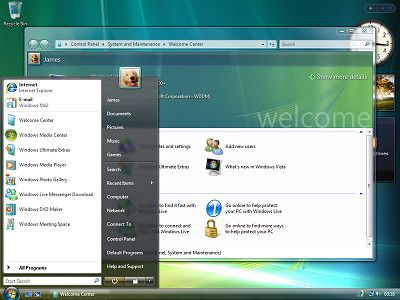From our front-page news:
When talking smack about Windows Vista, one of the most common aspects to pick on is the User Control Panel, or UAC for short. Even I've whined about it. Mostly, I think it's for good reason, and I think few could argue that. Microsoft themselves have even stated they went a little bit overboard, but they are quickly learning which improvements to make, so it should only improve in the future.
Though, according to the latest update in their Windows 7 blog, the improvements might not be here next month, or even next year - or until Windows 7. The blog goes into quite good detail regarding what UAC is all about, and what purpose it really serves. It goes as far as to delve into usage statistics as well, and surprisingly, the amount of UAC 'pop-ups' has drastically declined in the past year - although that might not be that surprising.
Their research further goes on to show that the number of applications to require a prompt has gone way down, which is a sign that the developers are being smarter when coding their application. The number was cut in half after the beta ended, and in half again since between the launch and now, so it's certainly getting better. For Windows 7, the outlook is looking even better, but I'm still confident it will be the very first thing I disable. Call me a rebel.

Now that we have the data and feedback, we can look ahead at how UAC will evolve—we continue to feel the goal we have for UAC is a good one and so it is our job to find a solution that does not abandon this goal. UAC was created with the intention of putting you in control of your system, reducing cost of ownership over time, and improving the software ecosystem. What we’ve learned is that we only got part of the way there in Vista and some folks think we accomplished the opposite.
Source: Engineering Windows 7 Blog
Though, according to the latest update in their Windows 7 blog, the improvements might not be here next month, or even next year - or until Windows 7. The blog goes into quite good detail regarding what UAC is all about, and what purpose it really serves. It goes as far as to delve into usage statistics as well, and surprisingly, the amount of UAC 'pop-ups' has drastically declined in the past year - although that might not be that surprising.
Their research further goes on to show that the number of applications to require a prompt has gone way down, which is a sign that the developers are being smarter when coding their application. The number was cut in half after the beta ended, and in half again since between the launch and now, so it's certainly getting better. For Windows 7, the outlook is looking even better, but I'm still confident it will be the very first thing I disable. Call me a rebel.

Now that we have the data and feedback, we can look ahead at how UAC will evolve—we continue to feel the goal we have for UAC is a good one and so it is our job to find a solution that does not abandon this goal. UAC was created with the intention of putting you in control of your system, reducing cost of ownership over time, and improving the software ecosystem. What we’ve learned is that we only got part of the way there in Vista and some folks think we accomplished the opposite.
Source: Engineering Windows 7 Blog
